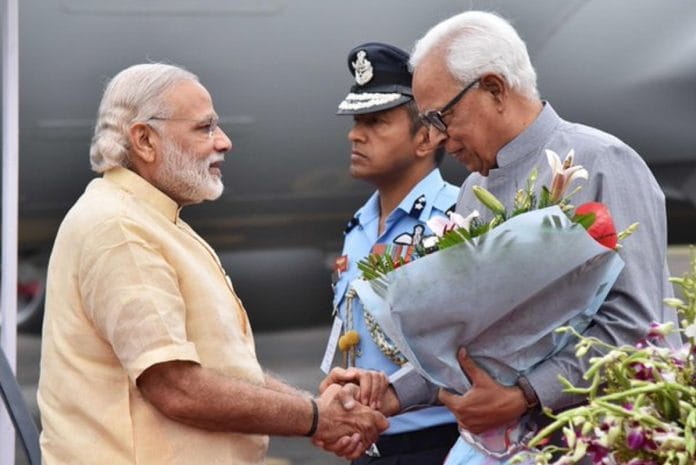In his first interview after Governor’s Rule was imposed in J&K, N.N. Vohra says that the focus will be on confidence building among the disillusioned youth of Kashmir.
Governor’s Rule in Jammu and Kashmir does not mean a hard line, muscular security approach, as many commentators believe, the state’s governor indicated in his first interview after this was enforced on June 20, a day after the Bharatiya Janata Party (BJP) broke its alliance with the People’s Democratic Party (PDP) and pulled out of the Mehbooba Mufti government. On the contrary, it means better governance and more focus on development, he said.
“I am unaware of the genesis of the [talk on the] hard line approach. The entire administrative apparatus, from the very top to the bottom shall function with efficiency, speed and accountability to serve the people and regain the trust of the common man,’’ NN Vohra said in an exclusive, written interview with HT.
Vohra, who will soon complete 10 years as governor, has administered the state on at least four occasions. Credited as being an able crisis manager, he took over the reins of the state in 2008, after a massive phase of unrest in the aftermath of the Amarnath land row, when the PDP pulled out of the Ghulam Nabi Azad government. Elections, however, were conducted within three months.
Mindful of the new ground realities, in which scores of young Kashmiris are choosing the path of violence, Vohra said there is “need to seek the involvement and support of various elements of civil society to engender a positive environment”. He has already held one all-party meeting with representatives from the BJP, PDP, National Conference and other political parties.
When asked about the difficulties of Governor’s Rule being able to provide a healing touch to an alienated population, Vohra said, “Administrative functioning during the period of unitary rule is not anti-people. On the contrary, such spells are utilised to speed up the machinery and render prompt service, particularly to the neglected elements of society and those living in underdeveloped areas.”
Responding to a specific question of how young men can be prevented from choosing the path of violence — an increasing problem since the killing of militant poster-boy Burhan Wani in 2016 — the governor said he would be working through parents, teachers and civil society to reach out to young people.
“Every possible effort shall be made to regain the confidence of the youth. We have already sought the support of the political organisations and they have offered strong support,’’ he said.
Asked if the state had lost ground to the militants during the 30- day period in which the government had announced a cessation of hostilities, Vohra backed the suspension of operations and the continuation of peace moves. “The suspension of anti-terror operations was a gesture harmonising with the traditional spirit of piety and harmony relating to the holy month of Ramzan”.
The current spell of Governor’s Rule is far more challenging than the preceding ones, particularly due to the fact that two ideologically-opposed parties came together to form a government. Both the BJP and the PDP are now trading charges, adding to the divide between Hindu-majority Jammu and the wounded Valley. While BJP president Amit Shah accused Mehbooba Mufti of neglecting Jammu and Ladakh, Mufti hit back, saying the BJP was disowning its own initiative and calling it a “soft approach”.
Vohra now has the unenviable job of restoring peace.
“Every possible initiative will be taken to foster a peaceful environment,’’ he said.
By special arrangement with ![]()







Very reassuring.